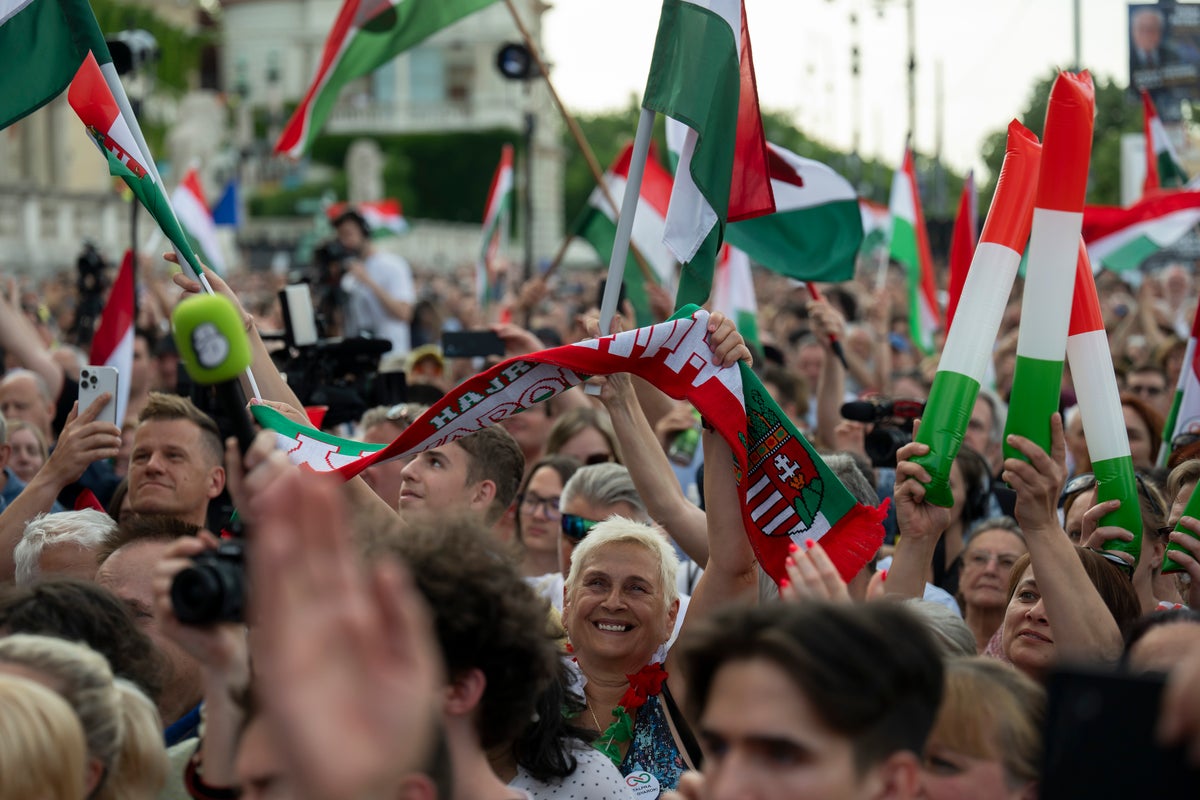
Nearly a dozen politicians took to the debate stage in Hungary's capital Thursday to make their pitch to Hungarian voters ahead of European Parliament elections. Outside, protesters demonstrated against the public broadcaster that hosted the event.
The debate, between the leaders of 11 party lists running in the June 9 elections, is the first to be broadcast by Hungary's public media since 2006, when Prime Minister Viktor Orbán last appeared face-to-face with an opponent to appeal for support ahead of elections.
Orbán, who has been accused by critics of cracking down on Hungary's media and violating democratic norms, later lost that election to the Socialist incumbent before winning the next ballot in 2010. He has been in power ever since.
The path to holding the first debate on public television in 18 years was fraught with controversy. The public broadcaster is widely believed by Orbán’s opponents to be subservient to his governing Fidesz party, and some participants disagreed with the decision to allow all 11 party list leaders to appear on stage, as well as with the narrow topics the broadcaster allowed to be discussed.
One of the most vocal critics of the public media and its organization of the debate was Péter Magyar, a new arrival in Hungarian politics whose sudden rise has him poised to become the country’s largest opposition force.
Before the event, Magyar told several thousand supporters outside the debate venue in Budapest that the public broadcaster “has lied morning, noon and night for 14 years.”
“How can it be that there is a political party, a community already supported by millions of Hungarians whose taxes support the public broadcaster, and it hasn't invited me onto public television for a single minute?” he said.
The public broadcaster earlier announced that the topics to be discussed during the debate would be limited to EU defense and security, migration and asylum, agriculture and/or democracy and the rule of law — something Magyar and other candidates disputed.
Péter Ember, one of the demonstrators, said he believes the candidates should be able to “clash their positions” to better inform voters of their choices in the election.
“There is finally a debate, but the circumstances are not what we would have liked. We feel that the parties and the people have not been given a say in how the debate should be,” he said. “They defined what they could talk about. I hope there’s someone who will be brave and talk about more important things.”
Polls show that Magyar's new party, Respect and Freedom, could take around 25% of the vote in the EU elections, while Orbán's Fidesz appears poised to take the most votes. Hungary's public broadcaster agreed to host the event after Magyar said he would hold a mass demonstration outside its headquarters if it did hold a live debate.







